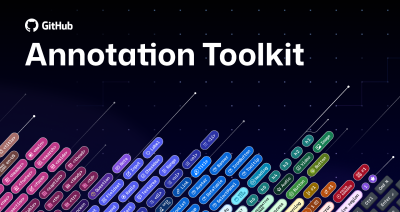The ReadME Project shares innovative paths to DevOps success
GitHub has the privilege of partnering with thousands of organizations to improve their DevOps practices, from established enterprises transforming the way they work to born-in-the-cloud businesses. We often connect developers,…

GitHub has the privilege of partnering with thousands of organizations to improve their DevOps practices, from established enterprises transforming the way they work to born-in-the-cloud businesses. We often connect developers, teams, and GitHub Enterprise customers with one another to exchange ideas and lessons learned, but we also recognize the value of making DevOps best practices and lessons available to all. Today, we’re excited to add to this body of knowledge with more stories from across the business and open source landscape.
When it comes to DevOps, we have come to recognize that the broader GitHub community is an incredibly important source of information. Because there’s no one size fits all DevOps solution, individual developers and teams can learn a tremendous amount from their peers. They seek guidance on what’s considered a good practice, which toolchains to consider, or how they’re performing relative to similar teams. They ask others about how to build a culture that encourages effective collaboration, which metrics to track to ensure their changes are making an impact, or even what to do when an initiative fails.
In an effort to give our community a space to share these lessons learned and DevOps best practices, we’re featuring articles from leaders in our community on GitHub’s The ReadME Project, starting with three teams featured today. Each talks through one of their end-to-end engineering processes, including toolchains, best practices, and key performance indicators (KPIs)—as well as important learnings they believe will benefit others.
- George Swan shares how Autodesk transformed their business by knocking down silos, increasing innersourcing across teams, and standardizing processes into a cohesive pipeline to synchronize product, documentation, and localization releases.
- Austin Hemmelgarn describes how site reliability engineers and developers at Netdata continually improve their processes for a distributed team, and how they automate and manage releases for a business built on open source software.
- Kevin Mo discusses the impetus behind Front’s move to Kubernetes, and how the company enabled continuous deployment.
We want our global community to continue to learn from each other, so we’re inviting you to nominate individuals and teams with different goals, talents, histories, and challenges to share their unique perspectives, technical expertise, and best practices on GitHub’s The ReadME Project.
In the coming weeks, we’ll be sharing more community contributed articles—not just from businesses, but from open source communities and industry leaders supporting DevOps toolchains. We’re looking forward to learning from individuals, teams, and GitHub Enterprise organizations—and receiving your feedback—so we can all build better software, together.
Tags:
Written by
Related posts

Level up design-to-code collaboration with GitHub’s open source Annotation Toolkit
Prevent accessibility issues before they reach production. The Annotation Toolkit brings clarity, compliance, and collaboration directly into your Figma workflow.

How to use the GitHub and JFrog integration for secure, traceable builds from commit to production
Connect commits to artifacts without switching tools.

How to streamline GitHub API calls in Azure Pipelines
Build a custom Azure DevOps extension that eliminates the complexity of JWT generation and token management, enabling powerful automation and enhanced security controls.